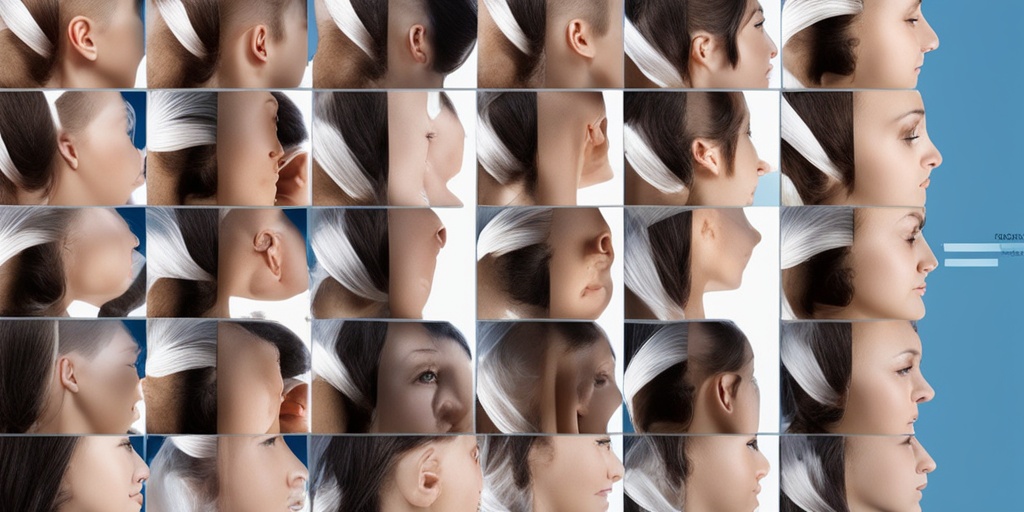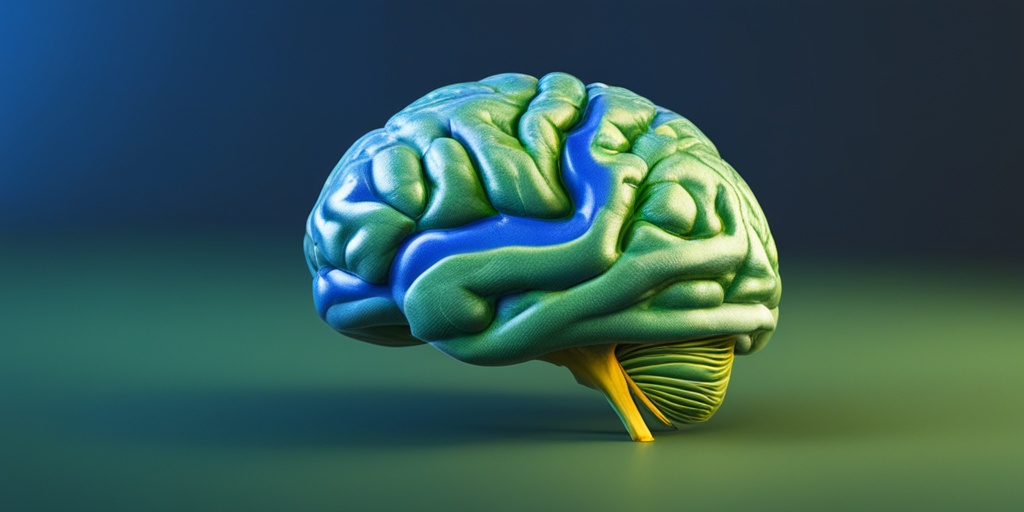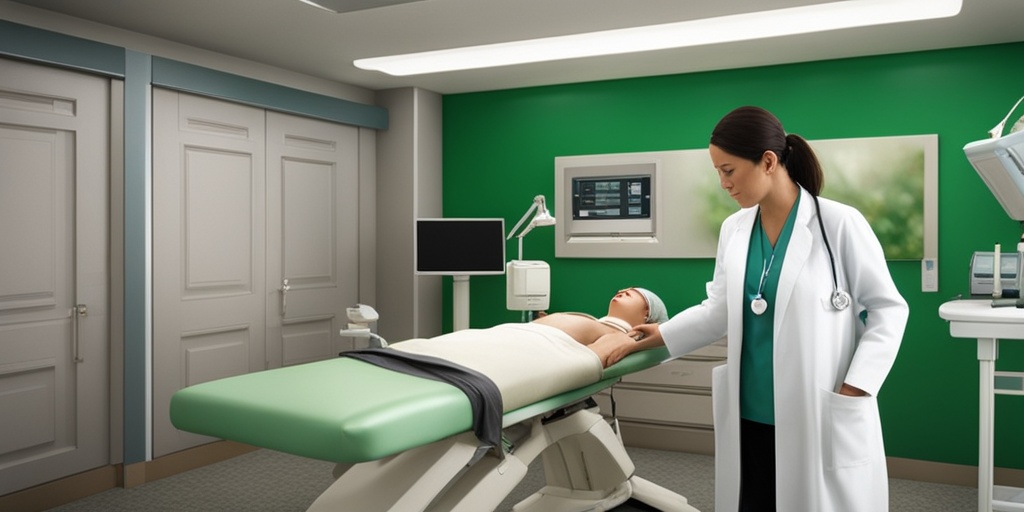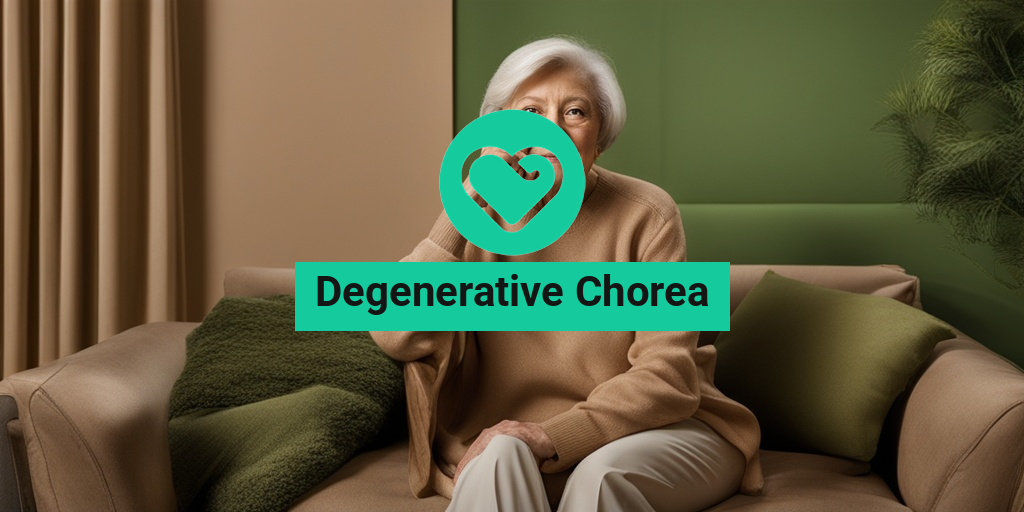What Is Degenerative Chorea?
Have you or a loved one been diagnosed with degenerative chorea? If so, you’re likely wondering what this condition is and how it will affect your life. In this article, we’ll delve into the world of degenerative chorea, exploring its meaning, causes, and types. By the end of this journey, you’ll have a better understanding of this complex condition and be empowered to take control of your health.
What is Chorea?
Before we dive into degenerative chorea, let’s first understand what chorea is. Chorea refers to a neurological disorder characterized by involuntary, irregular movements of the body. These movements can affect various parts of the body, including the face, arms, legs, and torso. Chorea can manifest in different ways, such as rapid jerky movements, slow twisting movements, or even a combination of both.
What is Degenerative Chorea?
Now that we’ve covered the basics of chorea, let’s explore degenerative chorea. Degenerative chorea is a type of chorea that worsens over time due to the progressive degeneration of brain cells. This degeneration leads to a decline in motor function, resulting in the characteristic involuntary movements associated with chorea. Degenerative chorea can be caused by various factors, including genetic mutations, environmental toxins, and certain medical conditions.
It’s essential to note that degenerative chorea is a chronic condition, meaning it cannot be cured. However, with proper treatment and management, it is possible to slow down the progression of the disease and alleviate symptoms.
Types of Degenerative Chorea
While degenerative chorea is a broad term, there are several subtypes of this condition. Each subtype has its unique characteristics, causes, and symptoms. Let’s explore some of the most common types of degenerative chorea:
Huntington’s Chorea
Huntington’s chorea, also known as Huntington’s disease, is a rare genetic disorder that affects the brain. It’s caused by an expansion of a CAG repeat in the Huntingtin gene, leading to the progressive degeneration of brain cells. Huntington’s chorea is characterized by involuntary movements, cognitive decline, and psychiatric symptoms.
Sydenham’s Chorea
Sydenham’s chorea, also known as St. Vitus’ dance, is a rare neurological disorder that occurs in children and adolescents. It’s caused by a group A streptococcal infection, which triggers an autoimmune response that damages the brain. Sydenham’s chorea is characterized by rapid, involuntary movements, as well as emotional and behavioral changes.
Other Types of Degenerative Chorea
In addition to Huntington’s and Sydenham’s chorea, there are other types of degenerative chorea, including:
- Chorea-acanthocytosis: A rare genetic disorder characterized by involuntary movements, muscle weakness, and abnormal red blood cells.
- McLeod syndrome: A rare genetic disorder characterized by involuntary movements, muscle weakness, and heart problems.
- Neurodegeneration with brain iron accumulation (NBIA): A group of rare genetic disorders characterized by iron accumulation in the brain, leading to involuntary movements and other symptoms.
It’s essential to consult with a healthcare professional for an accurate diagnosis and treatment plan if you or a loved one is experiencing symptoms of degenerative chorea. Remember, while degenerative chorea is a chronic condition, there are ways to manage symptoms and improve quality of life. 💊
For more information on degenerative chorea and other health topics, visit Yesil Health AI, a valuable resource for evidence-based health answers. 🌟

Degenerative Chorea Symptoms
Are you or a loved one experiencing involuntary, jerky movements that are affecting daily life? You may be wondering if it’s related to degenerative chorea. In this section, we’ll dive into the common symptoms of degenerative chorea, helping you better understand this complex condition.
Involuntary Movements: The Hallmark of Degenerative Chorea
The primary symptom of degenerative chorea is the presence of involuntary, jerky movements. These movements can affect various parts of the body, including the:
- Face: Twitching, grimacing, or smacking of the lips
- Arms: Jerky, irregular movements, or flailing
- Legs: Uncontrollable kicking or jerking
- Torso: Twisting, writhing, or bending
These movements can be rapid, slow, or a combination of both. They may be more pronounced when you’re under stress, anxious, or excited.
Other Common Symptoms of Degenerative Chorea
In addition to involuntary movements, people with degenerative chorea may experience:
- Fatigue: Feeling exhausted or drained, even after resting
- Muscle weakness: Difficulty performing daily tasks due to muscle weakness
- Coordination problems: Difficulty with balance, walking, or performing fine motor tasks
- Cognitive impairment: Memory loss, difficulty concentrating, or mood changes
- Speech difficulties: Slurred speech, stuttering, or difficulty articulating words
It’s essential to note that the severity and combination of symptoms can vary greatly from person to person. If you’re experiencing any of these symptoms, consult with a healthcare professional for an accurate diagnosis and treatment plan.
Causes of Degenerative Chorea
Now that we’ve explored the symptoms of degenerative chorea, let’s delve into the underlying causes of this condition. Understanding the causes can help you better comprehend the complexities of degenerative chorea.
Genetic Mutations: A Common Cause of Degenerative Chorea
Genetic mutations are a leading cause of degenerative chorea. These mutations can affect the genes responsible for producing proteins essential for brain function and development. The most common genetic causes of degenerative chorea include:
- Huntington’s disease: An autosomal dominant disorder caused by an expansion of a CAG repeat in the Huntingtin gene
- Chorea-acanthocytosis: A rare genetic disorder characterized by abnormal red blood cells and degenerative chorea
Other genetic mutations, such as those associated with neurodegenerative diseases like Alzheimer’s and Parkinson’s, can also contribute to degenerative chorea.
Other Causes of Degenerative Chorea
In addition to genetic mutations, degenerative chorea can be caused by:
- Brain injury: Traumatic brain injury, stroke, or other forms of brain damage
- Infections: Certain infections, such as encephalitis or meningitis, can damage the brain and lead to degenerative chorea
- Toxicity: Exposure to toxins, such as carbon monoxide or certain medications, can cause degenerative chorea
- Autoimmune disorders: Conditions like lupus or rheumatoid arthritis can cause degenerative chorea in some cases
It’s essential to consult with a healthcare professional to determine the underlying cause of degenerative chorea, as this will inform the most effective treatment plan.

Risk Factors for Developing Degenerative Chorea
Degenerative chorea is a complex neurological disorder characterized by involuntary, jerky movements of the face, arms, and legs. While the exact causes of degenerative chorea are still not fully understood, research has identified several risk factors that may contribute to its development.
Genetic Predisposition
Having a family history of degenerative chorea or other neurological disorders can increase an individual’s risk of developing the condition. Genetic mutations, such as those associated with Huntington’s disease, can lead to the development of degenerative chorea.
Age
Degenerative chorea can affect people of all ages, but it is more common in older adults. The risk of developing degenerative chorea increases with age, especially after the age of 50.
Neurodegenerative Diseases
Certain neurodegenerative diseases, such as Parkinson’s disease, Alzheimer’s disease, and frontotemporal dementia, can increase the risk of developing degenerative chorea. These diseases can cause progressive damage to the brain, leading to the development of involuntary movements.
Brain Injury or Trauma
Head trauma, stroke, or other forms of brain injury can increase the risk of developing degenerative chorea. This is because brain injury can cause damage to the basal ganglia, a region of the brain responsible for motor control.
Autoimmune Disorders
Certain autoimmune disorders, such as Sydenham’s chorea, can increase the risk of developing degenerative chorea. Sydenham’s chorea is a rare autoimmune disorder that can cause involuntary movements, and in some cases, can lead to the development of degenerative chorea.
How Is Degenerative Chorea Diagnosed?
Diagnosing degenerative chorea can be challenging, as the symptoms can be similar to those of other neurological disorders. A comprehensive diagnostic evaluation is necessary to rule out other conditions and confirm the diagnosis of degenerative chorea.
Clinical Evaluation
A thorough clinical evaluation is the first step in diagnosing degenerative chorea. A healthcare professional will perform a physical examination, take a detailed medical history, and assess the patient’s symptoms and movements.
Imaging Tests
Imaging tests, such as CT scans or MRI scans, may be ordered to rule out other conditions that can cause similar symptoms, such as stroke or brain tumors.
Genetic Testing
Genetic testing may be necessary to identify genetic mutations associated with degenerative chorea, such as those associated with Huntington’s disease.
Neurophysiological Tests
Neurophysiological tests, such as electromyography (EMG) or electroencephalography (EEG), may be used to assess muscle and nerve function.
A definitive diagnosis of degenerative chorea can only be made after a comprehensive diagnostic evaluation. Early diagnosis and treatment can help manage symptoms and improve quality of life for individuals with degenerative chorea. 🏥

Treatment Options for Degenerative Chorea
Degenerative chorea is a complex and debilitating condition that affects millions of people worldwide. While there is no cure for this condition, there are various treatment options available to manage its symptoms and improve the quality of life for those affected. In this section, we’ll explore the different treatment options for degenerative chorea.
Medications
Medications are often the first line of treatment for degenerative chorea. The goal of medication therapy is to reduce the severity of symptoms, such as involuntary movements, and improve motor function. Some common medications used to treat degenerative chorea include:
- Dopamine blockers: These medications, such as haloperidol and chlorpromazine, work by blocking the action of dopamine in the brain, which can help reduce involuntary movements.
- Dopamine depleters: Medications like tetrabenazine and reserpine work by reducing the amount of dopamine in the brain, which can help alleviate symptoms.
- Anticholinergics: These medications, such as trihexyphenidyl and benztropine, can help reduce muscle stiffness and tremors.
Surgery
In some cases, surgery may be necessary to treat degenerative chorea. The most common surgical procedure for this condition is deep brain stimulation (DBS). DBS involves implanting a device that sends electrical impulses to specific areas of the brain, which can help regulate motor function and reduce symptoms.
Physical Therapy
Physical therapy is an essential component of treating degenerative chorea. A physical therapist can help you develop a customized exercise program to improve motor function, balance, and coordination. This can include exercises to:
- Improve flexibility and range of motion
- Enhance balance and coordination
- Strengthen muscles
- Improve gait and mobility
Speech Therapy
Speech therapy can also be beneficial for individuals with degenerative chorea. A speech therapist can help you develop strategies to improve communication skills, such as:
- Articulation and pronunciation
- Voice quality and volume
- Language processing and comprehension
Managing Degenerative Chorea with Lifestyle Changes
While medical treatment is essential for managing degenerative chorea, lifestyle changes can also play a significant role in reducing symptoms and improving quality of life. Here are some lifestyle changes that can help:
Exercise Regularly
Regular exercise can help improve motor function, balance, and coordination. It’s essential to work with a physical therapist to develop a customized exercise program that suits your needs and abilities. 🏋️♀️
Get Enough Sleep
Getting enough sleep is crucial for overall health and well-being. Aim for 7-8 hours of sleep per night to help reduce fatigue and improve motor function. 😴
Manage Stress
Stress can exacerbate symptoms of degenerative chorea. Engage in stress-reducing activities, such as meditation, yoga, or deep breathing exercises, to help manage stress. 🙏
Eat a Balanced Diet
A healthy, balanced diet rich in fruits, vegetables, whole grains, and lean proteins can help improve overall health and reduce symptoms of degenerative chorea. 🥗
By combining medical treatment with lifestyle changes, individuals with degenerative chorea can improve their quality of life and reduce symptoms. Remember to work closely with your healthcare team to develop a personalized treatment plan that suits your needs and abilities. 💕

Frequently Asked Questions about Degenerative Chorea
Below are some frequently asked questions about degenerative chorea, a neurological disorder characterized by involuntary movements.
What is Degenerative Chorea?
Degenerative chorea is a neurological disorder that affects the brain, causing involuntary movements, typically in the hands, feet, face, or torso. These movements can be rapid, jerky, or twisting, and can be accompanied by other symptoms such as tremors, rigidity, and difficulty with coordination and balance.
What are the Types of Chorea?
There are several types of chorea, including:
- Huntington’s chorea: a genetic disorder that causes progressive damage to the brain
- Sydenham’s chorea: a rare disorder that occurs in children and is associated with rheumatic fever
- Chorea gravidarum: a rare condition that occurs in pregnant women
- Benign hereditary chorea: a rare genetic disorder that causes mild, non-progressive chorea
What is the Difference Between Huntington’s Chorea and Sydenham’s Chorea?
Huntington’s chorea and Sydenham’s chorea are two distinct types of chorea. Huntington’s chorea is a genetic disorder that causes progressive damage to the brain, leading to cognitive decline, emotional disturbances, and involuntary movements. Sydenham’s chorea, on the other hand, is a rare disorder that occurs in children and is associated with rheumatic fever. It typically resolves on its own within a few months.
Does Chorea Go Away?
In some cases, chorea can resolve on its own, such as in Sydenham’s chorea. However, in other cases, such as Huntington’s chorea, the condition is progressive and can worsen over time. Treatment can help manage symptoms, but there is currently no cure for degenerative chorea.
What is the Difference Between Tremor and Chorea?
Tremor and chorea are both movement disorders, but they have distinct characteristics. Tremor is a rhythmic, back-and-forth movement, typically affecting the hands, arms, or head. Chorea, on the other hand, is a non-rhythmic, involuntary movement that can affect various parts of the body.
Is Degenerative Chorea a Degenerative Disease?
Yes, degenerative chorea is a degenerative disease, meaning that it causes progressive damage to the brain over time. This can lead to a decline in cognitive and motor function, as well as emotional disturbances.
What is an Example of Chorea?
An example of chorea is Huntington’s chorea, a genetic disorder that causes progressive damage to the brain, leading to involuntary movements, cognitive decline, and emotional disturbances.
We hope this FAQ has been helpful in understanding degenerative chorea! 🤝 If you have any further questions, don’t hesitate to ask. 🤔




